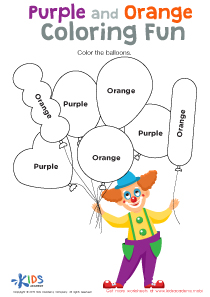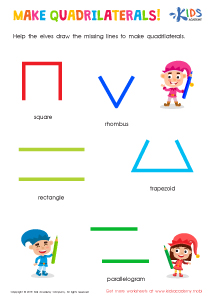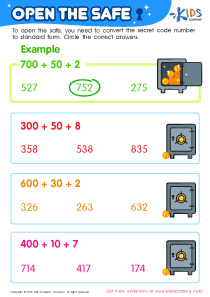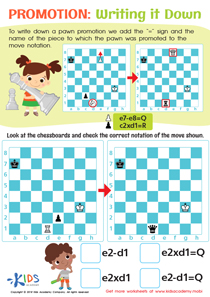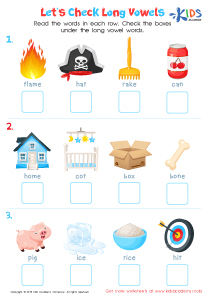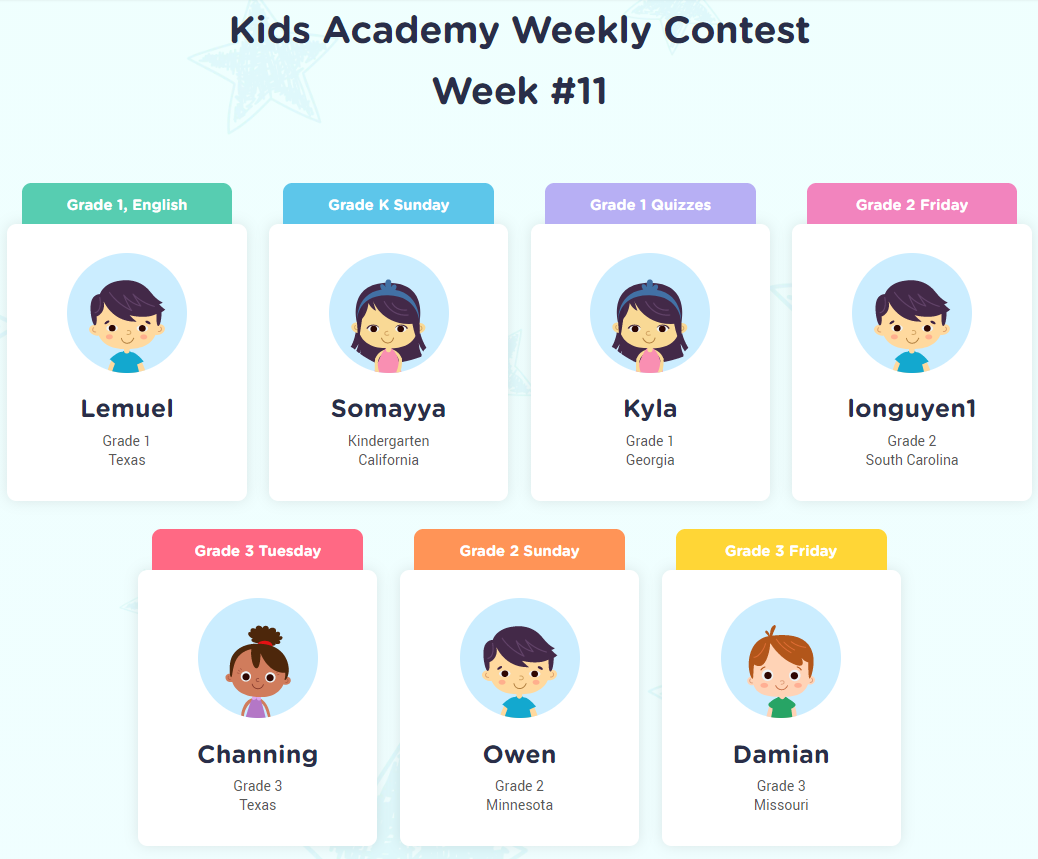Composing Numbers Quizzes for Ages 4-6
3 results
3 filtered results
Clear all filters3 filtered results
-
From - To
Introducing our engaging interactive assessment quizzes tailored specifically for children ages 4-6 on the essential topic of Composing Numbers! Designed to captivate young minds, these quizzes not only evaluate your child's understanding of number composition but also offer instant feedback to reinforce learning. Ideal for both home and classroom environments, our quizzes make mastering the basics of numbers fun and interactive. With a focus on building a strong numerical foundation, each quiz is crafted to inspire curiosity and confidence in young learners. Dive into our Composing Numbers quizzes and watch your child's numerical skills flourish!
Interactive quizzes on Composing Numbers for Ages 4-6 are an invaluable tool in the educational journey of young learners. These quizzes are designed to make the foundational concept of numbers engaging and accessible, crucial for children in their formative years of learning. By integrating these interactive assessments into a child’s study routine, we can significantly enhance their understanding and application of numbers, setting a solid foundation for their future mathematical skills.
First and foremost, Composing Numbers quizzes cater specifically to the developmental stage of children aged 4 to 6. At this age, children are just beginning to grasp the concept of numbers and their values. These quizzes are crafted with this in mind, using age-appropriate language, vibrant visuals, and intuitive interfaces that encourage participation and sustain attention. This careful design ensures that children are not only learning but also enjoying the process, fostering a positive attitude toward education.
The interactive nature of these quizzes is one of their most beneficial features. Unlike traditional worksheets or oral questioning, interactive quizzes provide immediate feedback. This instant response to their answers helps children quickly identify their mistakes and understand the correct solutions, reinforcing learning in real-time. Such feedback is crucial for young learners as it boosts confidence and encourages a trial-and-error approach to problem-solving, both important skills in mathematical thinking.
Moreover, Composing Numbers quizzes are versatile in their content, covering a wide range of topics suitable for Ages 4-6. From understanding basic number values and recognizing numbers, to more complex tasks like simple addition or subtraction, these quizzes offer a comprehensive curriculum. This variety ensures that no matter the child's level, there is always a new challenge awaiting, pushing them gently towards improved performance and deeper understanding.
The interactive quizzes on Composing Numbers also incorporate adaptive learning technologies. This means that the difficulty level of the quizzes can adjust based on the child’s performance, providing a personalized learning experience for each student. For children who may need more time to grasp certain concepts, this feature is particularly beneficial, ensuring they can learn at their own pace without feeling discouraged.
Furthermore, these quizzes are an excellent tool for parents and educators to track the progress of their children or students. By monitoring performance on these quizzes, adults can identify areas of strength and areas needing improvement, allowing for targeted interventions and support. This data-driven approach to education ensures that every child receives the attention and resources they need to succeed.
In conclusion, interactive quizzes on Composing Numbers for Ages 4-6 are more than just a learning tool; they are a bridge to mathematical literacy for young learners. By engaging children in an interactive, supportive, and adaptive learning environment, these quizzes lay down the cornerstone for lifelong numeracy skills. As children navigate through the colorful and dynamic challenges, they not only learn about numbers but also develop critical thinking, problem-solving abilities, and a love for learning that will benefit them well beyond their early years.
